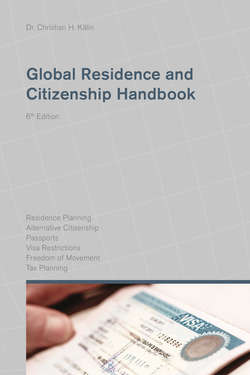Читать книгу Global Residence and Citizenship Handbook - Christian H. Kälin - Страница 60
На сайте Литреса книга снята с продажи.
4.1Can a nation’s image be changed?
ОглавлениеUnfortunately, the phrase I coined back in 1998, nation brand, soon became distorted, mainly by a combination of naïve (or perhaps lazy) governments and ambitious consulting firms, into nation branding: a dangerously misleading phrase which seems to contain a promise that the images of countries can be directly manipulated using the techniques of commercial marketing communications, and an ignored or less desirable country magically transformed into the destination of choice almost overnight.
Yet despite repeatedly calling for it over the last 15 years, I have never seen a shred of evidence to suggest that this is possible: no case studies, no research, and not even any very persuasive arguments. I conclude that countries are judged by what they do, not by what they say, as they have always been; yet the notion that a country can simply advertise its way into a better reputation has proved to be a pernicious and surprisingly resilient one.
The message is clear: if a country is serious about enhancing its international image, it should concentrate on the “product” rather than chase after the chimera of “branding”. There are no short cuts. Only a consistent, coordinated and unbroken stream of useful, noticeable, world-class and, above all, relevant ideas, products and policies can gradually enhance the reputation of the country that produces them.
Of course, sectoral promotion is a different matter, and much confusion is created by the conflation of sectoral promotion with national image. The confusion isn’t helped by the fact that people who are responsible for marketing places as investment, relocation, study or tourism destinations often describe their work as ‘branding’. However, the distinction is really quite clear: when you’re selling a mass-market product or service (such as holidays, investment opportunities, exported goods or even – at a stretch – culture) then of course advertising and marketing are legitimate and necessary. Each country’s competitors are doing it, and consumers accept it: the underlying message (buy this, it’s good) is fundamentally honest and straightforward. Nation branding, on the other hand, has nothing to sell, and the underlying message (please change your mind about my country) is government propaganda, which investors, high net worth individuals and indeed most other people rightly ignore.
Having made this distinction, however, it is important to stress that relocation and citizenship are in a rather different sub-category from tourism or cultural promotion, since they are targeted at a highly specialized audience, whereas tourism and culture are predominantly mass-market consumer matters. For this reason I have always been skeptical about the use of mass-marketing techniques, such as print or broadcast advertising campaigns, to promote foreign direct investment, citizenship or residence. The target audience is, after all, a small and easily defined one, and in such circumstances it’s difficult to justify the expense of mass-media exposure. Experience suggests that the administrations which focus their expenditure on a world-class sales operation rather than spending huge sums on consumer-style marketing, achieve better return on investment in the long run.
